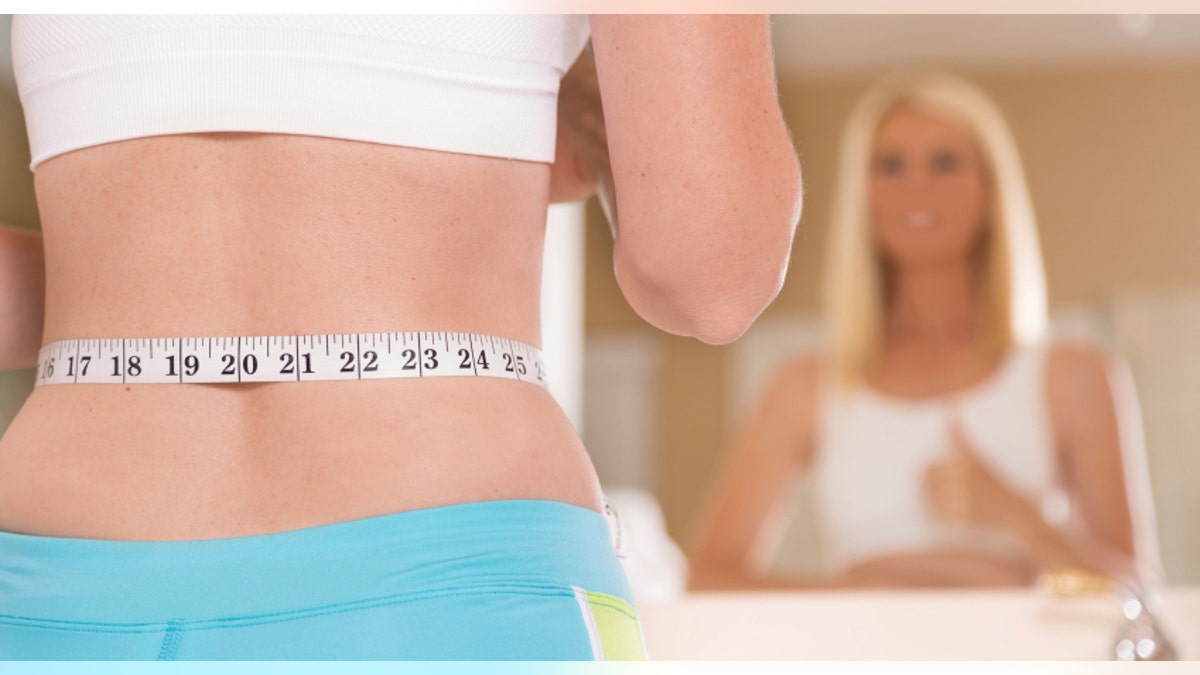
(©2013 Pamela Albin Moore/fstop123)
Maybe you thought you would have Kate Middleton’s abs a few months after giving birth – but for most moms, that’s just not realistic. Like pregnancy, there’s a lot about your post-partum body that may surprise you.
Here are eight changes you might experience and what you can do about them.
1. Stubborn lbs.
Major hormonal shifts that linger after pregnancy make it tough to lose pregnancy weight. And many women are also impatient, according to Dr. Alyssa Dweck, a board-certified obstetrician and gynecologist and co-author of V is for Vagina. “They want to lose their weight very quickly, when it really took nine months to get there.”
How to cope: “Everybody would love a magic bullet, but it really comes down to smart nutrition choices and being active,” said Leah Keller, a pre- and post-natal fitness expert and creator of The Dia Method. A diet rich in green vegetables, low sugar fruits, healthy protein and fats, and carbs in moderation is best. Plus breastfeeding burns between 300 to 500 calories per day.
2. Belly fat and loose skin
The pregnancy pooch and stretched out skin are common, but about 50 percent of women have a medical condition called diastasis recti, which causes the abdominal muscles to separate. “When those separate, they do not go back on their own no matter how many crunches or how much weight you lose,” Keller said.
How to cope: Instead of crunches, sit-ups and even some Pilates moves, which can make diastasis recti worse, Keller suggests core compressions. Draw your abs into your spine, pulse your abdominal muscles and exhale with each squeeze.
3. A leaky bladder
Urinary stress incontinence, or leaking urine after a sneeze or cough, is normal right after giving birth. It’s not clear if it’s because of pregnancy or childbirth, but it’s probably a combination of both, Dweck said. Some women are also genetically predisposed.
How to cope: Urinate at regular times throughout the day to train your bladder not to be overly full. Kegel exercises—about 30 to 40 every day—will strengthen the pelvic floor muscles, and cutting down on caffeine and losing weight can also help. If incontinence persists, talk to your doctor about pelvic floor exercisers, biofeedback and surgery.
4. Vaginal dryness
Hormonal changes can cause the vaginal tissue to feel dry and inelastic, especially if you’re breastfeeding. Plus, if you had sex less frequently during pregnancy, it might be more painful now.
How to cope: A personal lubricant is usually enough, but your doctor may prescribe a vaginal moisturizer or an estrogen supplement as well.
5. Breast size and sagging
Breasts get bigger during pregnancy, even bigger during lactation, and when lactation stops completely, “they’ll have a much different architecture to them,” Dweck said. Pregnancy weight gain and loss can also can change bra size and cause sagging.
How to cope: A supportive, well-fitting bra is key and exercise that strengthens the pectoralis muscle won’t change your breasts, but “it will give the illusion that your breasts are perkier,” she said.
6. Hair loss
About 40 to 50 percent of women lose their hair within one to five months after giving birth. During pregnancy, the rise in estrogen puts more hair in the resting phase, which makes it full.
Yet after delivery, when estrogen levels drop, it looks like you’re losing hair, “but you never lost the follicles, just the hair that the follicle is producing,” said Dr. James C. Marotta, a dual-board certified facial plastic surgeon and a hair restoration specialist.
How to cope: Hair loss should stop within four to five months after it starts. A diet rich in antioxidants can help, as well as vitamin B complex or biotin.
7. Back and hip pain
Pregnancy hormones, weight gain, imbalances in posture, diastasis recti and even stress can contribute to pain. Plus, many women don’t engage their abs at all during pregnancy, which can put stress on the back, Keller said.
How to cope: Combine kegels with core compressions for five to 10 minutes a day which will strengthen and stabilize the core and hips and help ease the pain.
8. Dark spots
Melisma is a condition that causes dark, sun-like spots on the face to linger several months postpartum.
How to cope: The spots will usually fade if you avoid the sun, but your dermatologist can prescribe a treatment as well.
